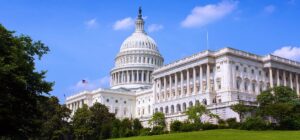
Defense companies' pause in all political donations by their Political Action Committees (PACs) in the wake of the Jan. 6 attack on the U.S. Capitol is unlikely to disfavor disproportionately the 147 GOP congressional members who voted not to certify the Electoral College results for President-elect Joe Biden and Vice President-elect Kamala Harris. So far, Lockheed Martin [LMT], Boeing [BA], Northrop Grumman [NOC], Raytheon [RTN], BAE Systems, and Leidos [LDOS] have been the six major defense companies to suspend such political donations (Defense Daily,…














